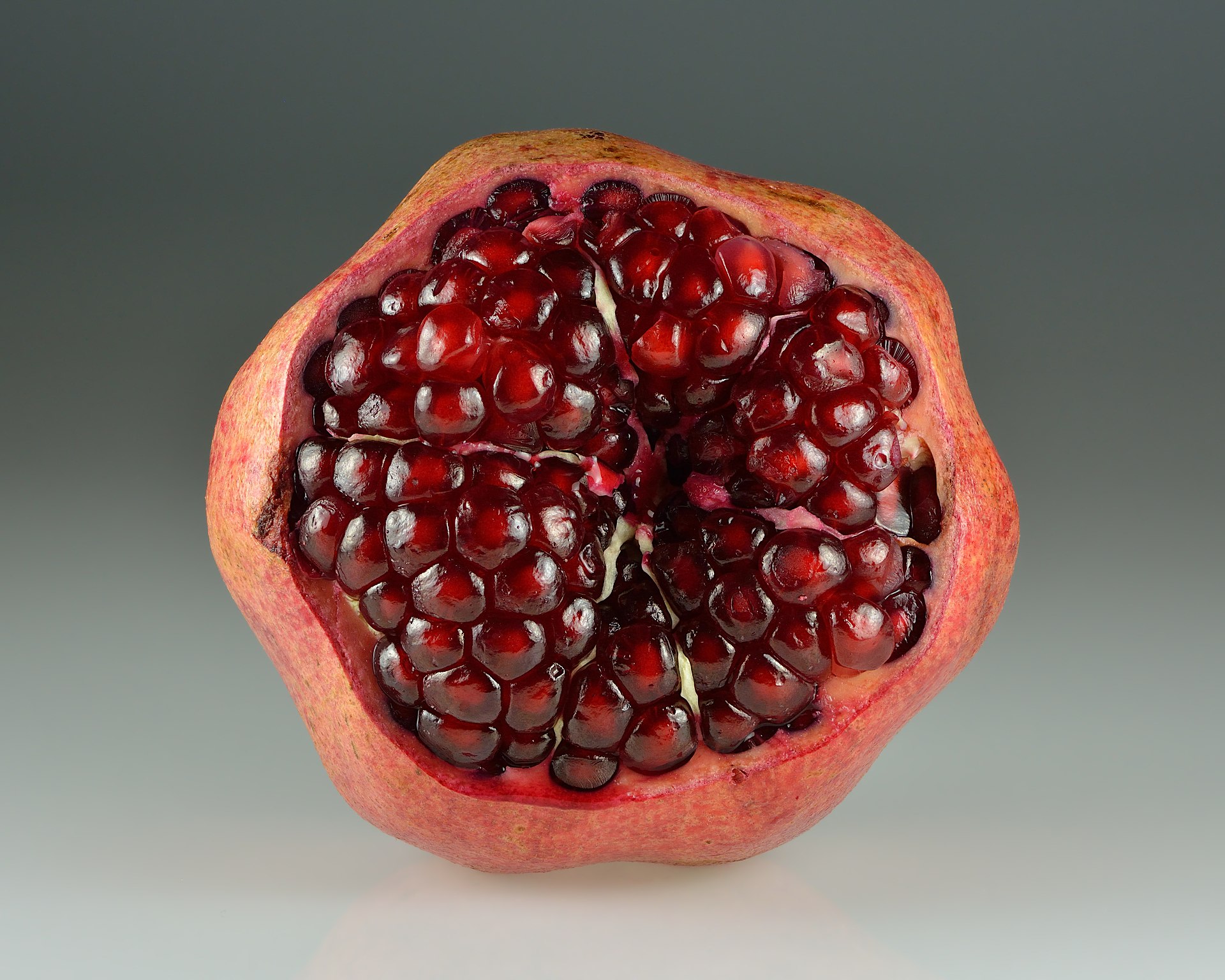Over the years, I’ve run into a few things that weren’t immediately-obvious to me.
One of the big ones was eating pomegranates by opening them underwater. For those not familiar, pomegranates have a lot of red seeds and white husk between them:

Cutting a pomegranate or even opening a pomegranate tends to burst at least some seeds. The seeds are sticky and stain and tend to spray juice when pierced.
However, if you just cut through the outer hull of the fruit, then open it by hand underwater in a bowl of water, any juice that would have sprayed out is just grabbed by the water. Even better, the (inedible) white husk floats, so it self-separates instead of sticking to everything.
Today, I decided to try eating a watermelon with a spoon. In the past, that’s tended to also make things spray, so I tried a grapefruit spoon, one with serrations that runs down the side. And that works great – the spoon is like a knife, can go more-cleanly through the watermelon than a regular spoon, and still lets you scoop up the watermelon.
Any other neat tips that might be unorthodox or that people might not have tried or know about?


Watermelon pickles: next on my “to do” list! (I’m imagining that they taste like cucumber pickles, but with a different texture.)
The preserve also looks like a great thing to try.
Alton brown Brown Has a recipe that’s similar to the way we do our pickled rinds.
The difference is in the spices. We do ours with black peppercorns, whole clove, and a cinnamon stick.
Honestly, you can pretty much use any spices you want, and it’ll be good. I’ve had them with coriander, caraway, hot peppers, all kinds of stuff.
The texture is crisp, at least for the first while; they do soften up towards the end of their life if you forget about them. The flavor of the rind itself is very mild, even milder than a cucumber.
Also, Alton calls for 1 inch cubes. That’s a good size overall, but if you want it smaller for making into a relish after they’ve sat a few days, starting with half or quarter inch cubes gets more of the flavor to the interior of the rind, if that’s something you’d want.
I’ve also seen them sliced into spears, similar to cuke pickle spears. Works really well with barbecue (pit smoked kind), roasted fowl, and stuff like livermush sandwiches, though that last one is mostly a me thing lol
The relish is as good as chowchow on most anything you’d use that on. You just mince up the cubes, and there should be enough juice in them to make a nice relish without anything added. If not, a tablespoon out of the brine in the jar will get you there. I’ve been known to mince up a little onion, usually a Vidalia or other sweet onion, and mix that in too, but not every time.